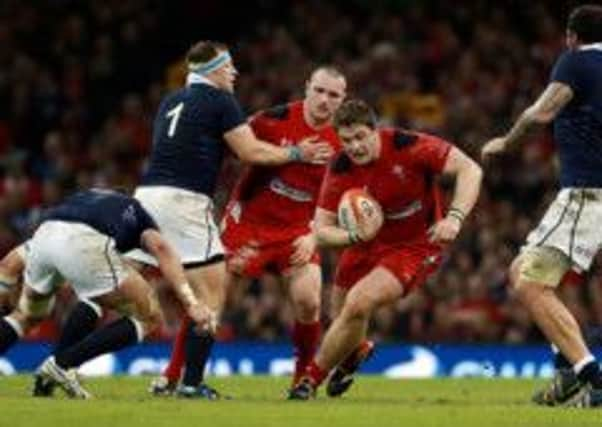David Ferguson: Hogg red card was game’s key move


Two tries by Jamie Roberts was an emphatic response to those who thought the big inside centre had perhaps left his va-va-voom in Australia at the end of last year’s Lions tour, while George North and Man of the Match Liam Williams displayed a range of running skills that left Scotland’s defence in tatters.
The Scotland back line is a callow one, with Dougie Fife the latest debutant to join relative newcomers Duncan Weir, Alex Dunbar and Matt Scott but, while they may be starting a journey, this Welsh back division showed themselves to be streets ahead in their development.
Advertisement
Hide AdAdvertisement
Hide AdIt is not an age thing, but an experience thing. The average age of both back lines was just under 25 years and there was a sense before kick-off, ridiculous as it now appears, that this young, energetic Scottish back line might, just might, be able to prey on faltering Welsh confidence in this championship.
How foolishly optimistic that turned out to be as Roberts & Co duly proved there to be a world of difference between the two back lines in terms of physicality, speed and finishing skills. The Scottish players stuck doggedly to their task for long spells of pressure. Fife worked hard to shut the door on numerous Welsh breaks, Laidlaw and Weir put in countless important tackles, as did Scott, Dunbar and Max Evans, in a sapping display of chasing ghosts. But they could not match their hosts for the swashbuckling manner of their counter-attacks from deep.
And yet we wonder what might have been, had the game not experienced the loss of the one player the Welsh genuinely feared, Stuart Hogg. The Glasgow full-back is not a malicious player, but a hard-edged, competitive one and, when he caught Dan Biggar late after a kick, and TV replays showed his shoulder to have struck Biggar’s face, there was no hope for the Scotland No.15.
The Scottish back line was left with one hand tied behind its back from the 22nd minute, and that remaining hour became a wretched one as the Welsh sniffed their chance to go in for the kill and produce the storming, morale-boosting performance and victory their support had been desperate to witness.
Where Scotland’s attack was easily snuffed out, when Mike Phillips launched ball to what may be the biggest back line in world rugby, the alarm bells screeched. And, while any analysis of the respective sides is lop-sided after Scotland were reduced to 14 men, there was no escaping the Welsh desire to seize the initiative and give vent to the kind of open, running rugby that had carried them to the last two Six Nations titles.
There is, similarly, little doubt that it would have been quite different had Hogg remained on the field and Scotland’s defence not been left short, both in terms of the defensive play the visitors would have produced and the attacking threat it could have yielded with the skills of the Borderer to hand.
But international rugby history does not feature ifs and maybes and, as Bread of Heaven rang out around the Welsh capital, the reality was that Wales still have a back division with attacking talent and potency while Scotland’s remains naive and very much a work in progress.